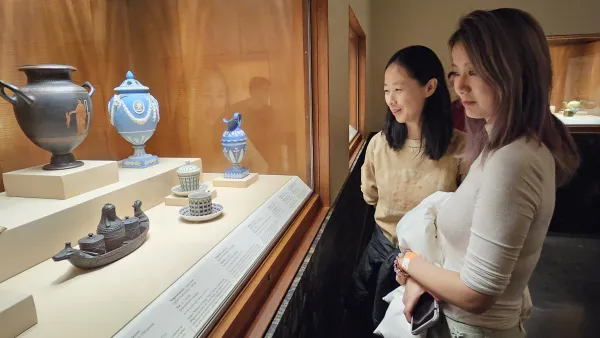The Stanley Spector and Richard Yang Undergraduate Student Award, established in 2018, allows students in East Asian Languages and Cultures to conduct study in East Asia or on an East Asian topic. This fund was founded by WashU alumnus Alex Primm and his wife, Cathy, to foster cross-cultural understanding by creating unique experiences for students of East Asian languages outside of the classroom. Through this program students can pursue projects that enrich their academic study of East Asia, including attending an academic conference, studying abroad, participating in an internship, or doing community outreach with an East Asian focus.
The second cohort of Stanley Spector and Richard Yang Award recipients share their experiences from the summer of 2019.
Kat Arnett, a Linguistics major focusing on Japanese language, studied Japanese in the Kyoto Consortium for Japanese Studies (KCJS) Program at Doshisha University. The KCJS Program assigns students to Japanese conversation partners studying at Doshisha University, to encourage students to practice speaking Japanese. Through her experiences with her conversation partner and her host family Kat was able to learn about Japanese education system, politics, economics, and even Japanese onomatopoeias. She says of her experiences, “I’m grateful for the opportunity I had to study in Kyoto with financial assistance from the Spector-Yang award. I know for certain that I’d love to return someday with even stronger Japanese skills. Until then, I can keep in touch with the people I met there.”
Jacob Finke, an International and Area Studies major studying Chinese, conducted research for his senior honors thesis topic: The United States’ involvement in the year immediately preceding the outbreak of the Chinese Civil War. Of his experiences Jacob states, “The Spector-Yang Award, so far, has helped me acquire some of the materials necessary for my research, particularly secondary sources written by both American and Chinese scholars. Some of the works are considered foundational texts for this topic, but others have not been used as much (or at all). My access to these sources will ensure that I am able to contribute meaningfully to conversations on this topic. Moving forward, I am planning on continuing to use the award funds to access archival records that have not been analyzed before, to bring an even more unique perspective to the academic debate on the 'Marshall mission.'”
Angie Kolb, a Korean Language and Literature major, spent 6 weeks attending Yonsei International Summer School in Seoul, South Korea to gain a deeper understanding of Korean culture. In addition to the two courses she took—North Korean Politics & Foreign Policy and Modern Korean History—Angie went to dance classes three to four times a week that were taught only in Korean to practice her Korean. Of her summer she notes: “My experience this summer has helped me explore different areas of Korean Studies that I hadn’t learned about before and will help advance my progress with my Korean major. I’ve almost exhausted the list of Korean culture courses at Washington University, and at Yonsei, I was able to expand my horizons for future research and educational pursuit. Because of my experience this summer, I hope to return to Korea either for graduate school or as a gap year before graduate school to continue studying Korean culture and language.”
Michael Zeng, who is minoring in Japanese, studied Classical Japanese in the Kyoto Consortium for Japanese Studies (KCJS) at Doshisha University. During class students took turns to do the hinshibunkai (parsing) and provide modern translations for texts such as Hōjōki, Ise Monogatari, Ujishūi Monogatari, Kokinshū, Shin-Kokinshū, Genji Monogatari, Makuranosōshi, Tsuredzuregusa, Heike Monogatari, and Konjyaku Monogatarishū. Michael also immersed himself in Japanese culture, visiting places including Nara, Seimei Jinja, and the Museum of Genji Monogatari and even joining a basketball team with locals. Of his studies he reflects, “Throughout the six weeks in Kyoto, I was challenged academically and by foreign ways of life. Through resolving these challenges, I gained new knowledge and perspectives. Upon learning classical Japanese, I not only enhanced my modern grammar and applied theories of historical linguistics I have learned, but also developed an awareness of the notion of the East Asian cultural circle.”

